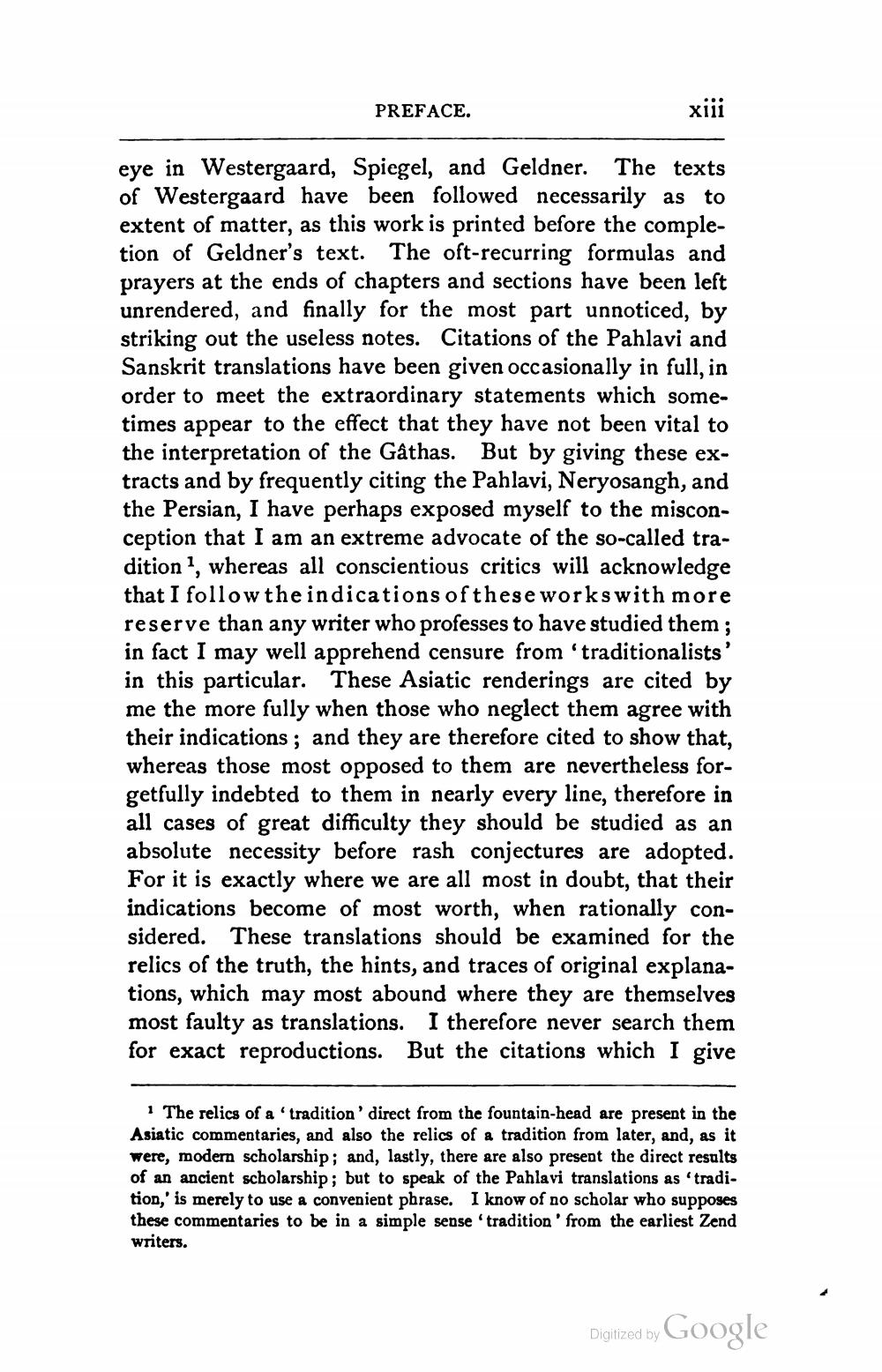________________
PREFACE.
xiii
eye in Westergaard, Spiegel, and Geldner. The texts of Westergaard have been followed necessarily as to extent of matter, as this work is printed before the completion of Geldner's text. The oft-recurring formulas and prayers at the ends of chapters and sections have been left unrendered, and finally for the most part unnoticed, by striking out the useless notes. Citations of the Pahlavi and Sanskrit translations have been given occasionally in full, in order to meet the extraordinary statements which sometimes appear to the effect that they have not been vital to the interpretation of the Gathas. But by giving these extracts and by frequently citing the Pahlavi, Neryosangh, and the Persian, I have perhaps exposed myself to the misconception that I am an extreme advocate of the so-called tradition !, whereas all conscientious critics will acknowledge that I follow the indications of these works with more reserve than any writer who professes to have studied them; in fact I may well apprehend censure from 'traditionalists' in this particular. These Asiatic renderings are cited by me the more fully when those who neglect them agree with their indications; and they are therefore cited to show that, whereas those most opposed to them are nevertheless forgetfully indebted to them in nearly every line, therefore in all cases of great difficulty they should be studied as an absolute necessity before rash conjectures are adopted. For it is exactly where we are all most in doubt, that their indications become of most worth, when rationally considered. These translations should be examined for the relics of the truth, the hints, and traces of original explanations, which may most abound where they are themselves most faulty as translations. I therefore never search them for exact reproductions. But the citations which I give
The relics of a 'tradition' direct from the fountain-head are present in the Asiatic commentaries, and also the relics of a tradition from later, and, as it were, modern scholarship; and, lastly, there are also present the direct results of an ancient scholarship; but to speak of the Pahlavi translations as 'tradition,' is merely to use a convenient phrase. I know of no scholar who supposes these commentaries to be in a simple sense tradition from the earliest Zend writers.
Digitized by Google
Digitized by




